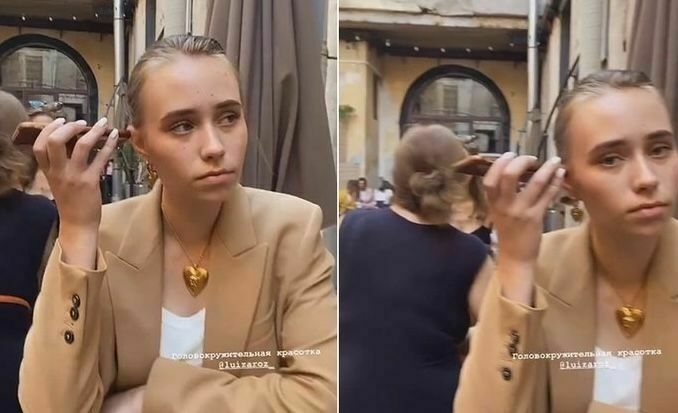
Nastya Rodionova, a Russian writer and artist who has been based in Paris since 2022, had only met gallery manager Luiza Rozova in passing at events before she learned who the 22-year-old’s parents were.
Described by a number of people as a “very nice and well-mannered girl,” Rozova is the daughter of a Russian woman named Svetlana Krivonogikh — and, according to investigative journalists, Russian President Vladimir Putin.
After learning about Rozova’s family background, Rodionova took to social media on June 4 to share it, highlighting the fact that the galleries where Rozova works primarily showcase Russian and Ukrainian anti-war art.
The post quickly went viral — but the reactions were divided. Some members of the Russian emigre community argued Rozova had no control over who her parents are and it shouldn’t be held against her.
Others agreed it was ethically questionable that a family member of the Kremlin leader worked in anti-war art galleries as Russia was waging war against Ukraine, and praised the artist for revealing it.
“We are talking about artists (showcased in the galleries) who fled the regime,” Rodionova told the Kyiv Independent.
“Many of them are in danger. They shared all their personal information with the gallery staff without knowing who works there — it upset them very much (to learn about her).”
The Kyiv Independent reached out to Rozova for comment through her employer. He acknowledged that he had passed along the request for comment and “if she considers it possible to answer” she would do so.
As of publication, Rozova has not replied.
Uncanny resemblance
In most of Rozova’s photos that were posted on social media or taken by media outlets for interviews, her face is deliberately cropped or turned away — a subtle yet telling choice, which some believe is due to her uncanny resemblance to the Russian leader.
In the few photos of Rozova where her face is fully visible, she does bear unmistakable resemblance to Putin.
“Listen, judging by (Putin’s) younger photos — probably, yes, I do look like him. But as it turns out, there are actually a lot of people who resemble Vladimir Vladimirovich,” she told GQ Russia in 2021. In the interview, Rozova wasn’t directly asked whether she was related to the Russian leader.
Rozova first attracted international attention in 2020, when the independent Russian investigative outlet Proekt published an expose detailing the substantial wealth of her mother, Svetlana Krivonogikh, who at the time possessed over $100 million in assets.
Proekt’s investigation revealed Krivonogikh’s longstanding ties to Putin and noted that her daughter Rozova “bears an uncanny resemblance” to the Russian leader, fueling the widespread speculation about her parentage.
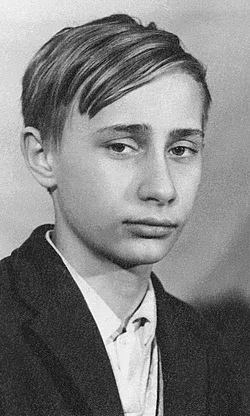

In the rare instances that Rozova has granted media interviews since then, she has never outright acknowledged or denied that Putin is her father.
Dmitri Dolinski — director of the L Association, which oversees both Studio Albatros and the L Galerie where Rozova is employed — confirmed to Rodionova that Rozova’s mother is Krivonogikh, she said.
Krivonogikh was sanctioned by the U.K. in 2023 due to her stake in Bank Rossiya, which has, among other things, supported investments in Russian-occupied Crimea following the illegal annexation of 2014.
Why it matters
In her original viral social media post, the Russian artist Rodionova stressed the importance of Studio Albatros and L Galerie as cultural spaces showcasing Russian and Ukrainian anti-war artists — and why that made the presence of the Kremlin leader’s alleged daughter there problematic.
“In the context of Russia’s ongoing war of aggression, people organizing any public events involving anti-war artists — and in some cases direct victims of the regime — must act with maximum transparency and sensitivity,” Rodionova wrote.
Rodionova previously exhibited her artwork with L Association but has chosen to no longer do so.
“We must know who we are working with and make informed decisions about whether we are okay with (exhibiting art there). My personal answer in this case is no.”
Given the Russian and Ukrainian artists’ outspoken anti-war positions, there is a potential risk associated with disclosing their personal information to L Association — particularly given the lack of clarity around Rozova’s ties to the Russian regime.
One artist who collaborated with the gallery had even welcomed Rozova into their home without knowing her family connections, Rodionova added.
When Rodionova first asked about Rozova’s background, Dolinski reportedly told her that he does not look into his employees’ families.
At the same time, Rodionova noted, it appears he hired Rozova while knowing who her mother was and the fact that her mother was already subject to U.K. sanctions.
Amid the ongoing controversy, the L Association appears to be standing behind Rozova.
“We regret that some voices have called for forms of stigmatization or ‘collective punishment,’ and we remind everyone that no one should be judged by their origins, birthplace, heritage, or any other criteria beyond their control. This is a red line we will not cross,” the organization wrote on Facebook on June 9, although they didn’t mention Rozova by name.
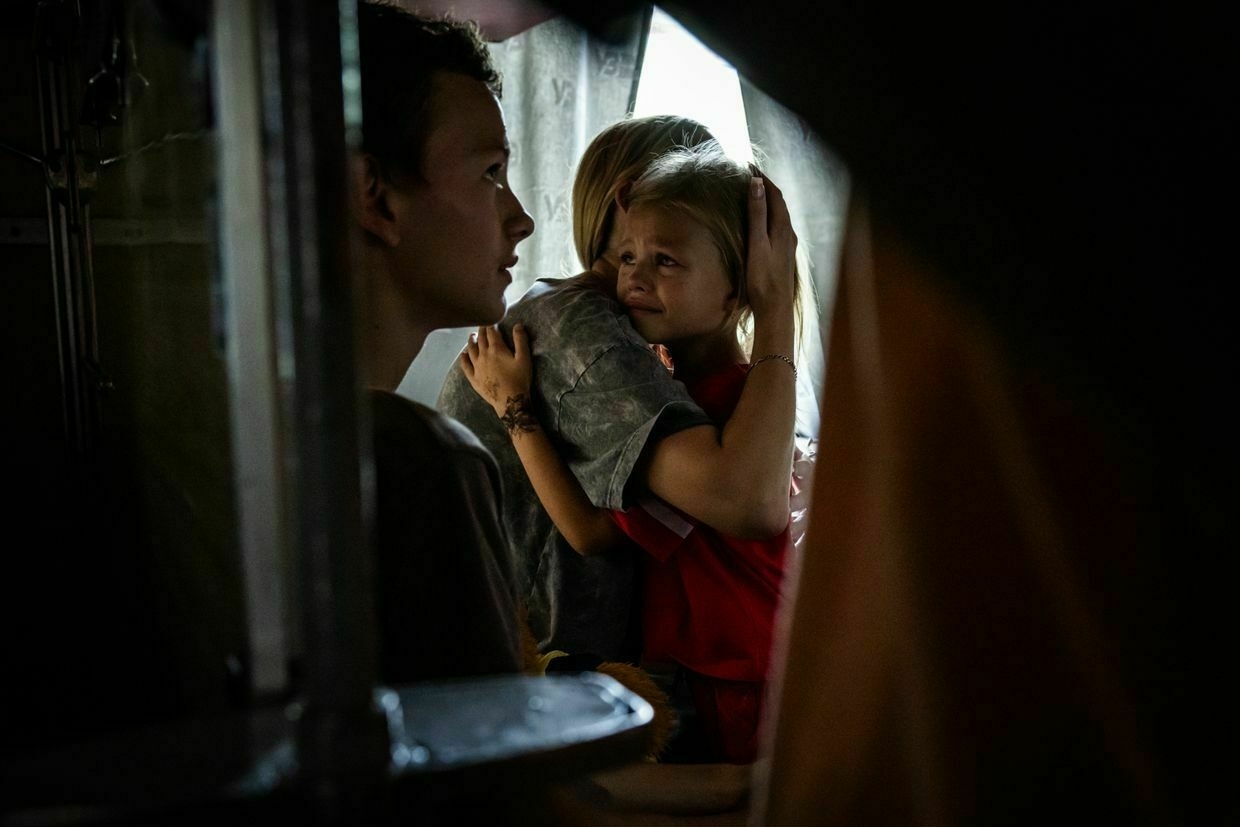
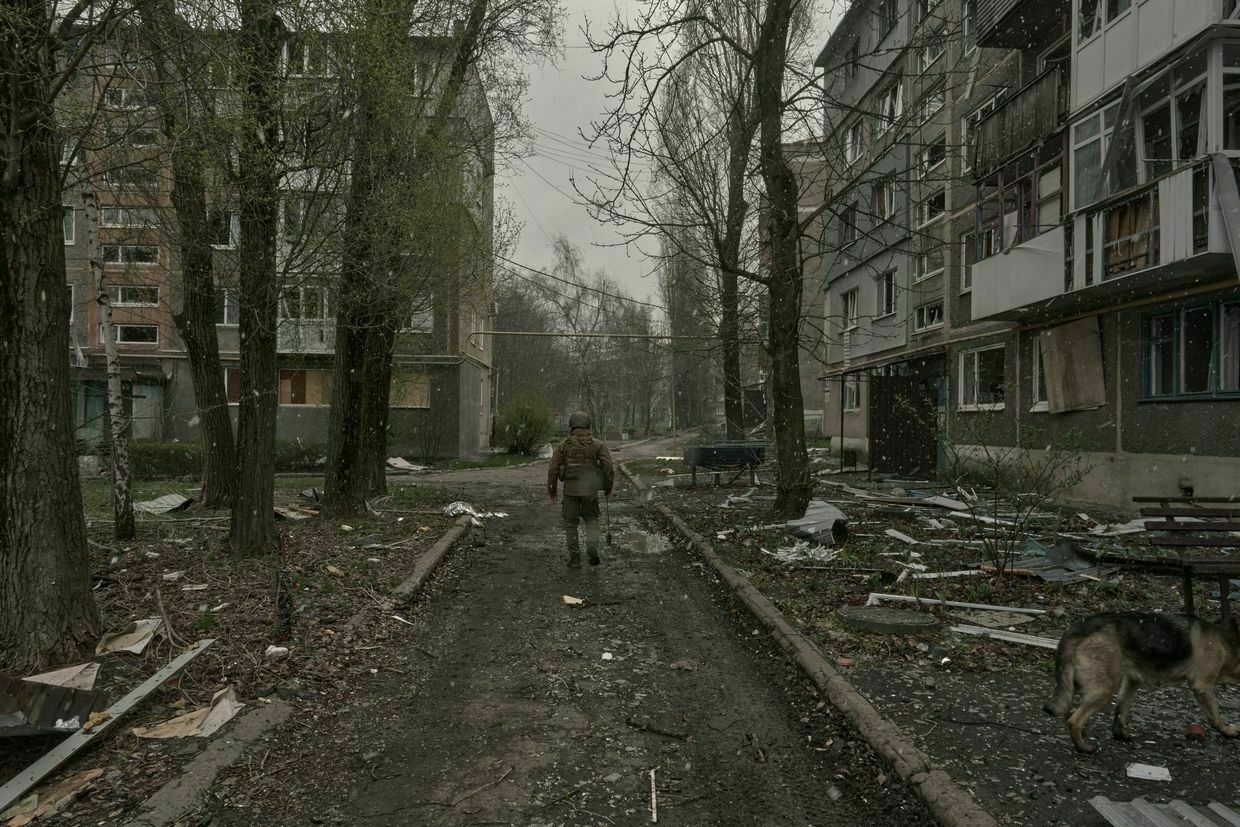
In response to Rodionova’s post, a number of Russian emigres argued in the comments that Rozova should not be held accountable for the crimes of her alleged father. They claimed she has made a public anti-war stance in social media — although her actual social media account is disputed — and pointed to her residence in Paris as evidence that she is unlikely part of Putin’s close inner circle.
The exact number of Putin’s children remains unconfirmed. It’s known that he has two daughters from his marriage to Lyudmila Putina, who he divorced in 2014. In 2024, the Russian investigative outlet Dossier Center reported that he also has two young sons with Alina Kabaeva, a former Olympic gymnast long rumored to be his partner. The two boys reportedly live in Putin’s residence on Lake Valdai in northwestern Russia.
Since coming forward with her revelation about Putin’s alleged daughter Rozova, Rodionova told the Kyiv Independent that she has dealt not only with public slander but also threats made against her.
“I want to believe that these people have expressed their personal opinion but lots of messages were suspiciously similar,” she said, suggesting that there was an organized campaign of retaliation.
Rodionova pushed back against those attacking her for raising questions about Rozova’s parentage, arguing that they were distorting the reasons behind her decision.
Regardless of Rozova’s personal politics or the extent to which she has or hasn’t benefited from the Russian regime, exiled artists like Rodionova argue that the ongoing dangers posed by Russia’s full-scale war require extra caution and transparency when it comes to who is welcomed into anti-war cultural spaces.
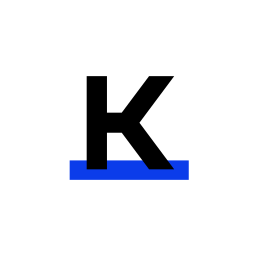 The Kyiv IndependentKate Tsurkan
The Kyiv IndependentKate Tsurkan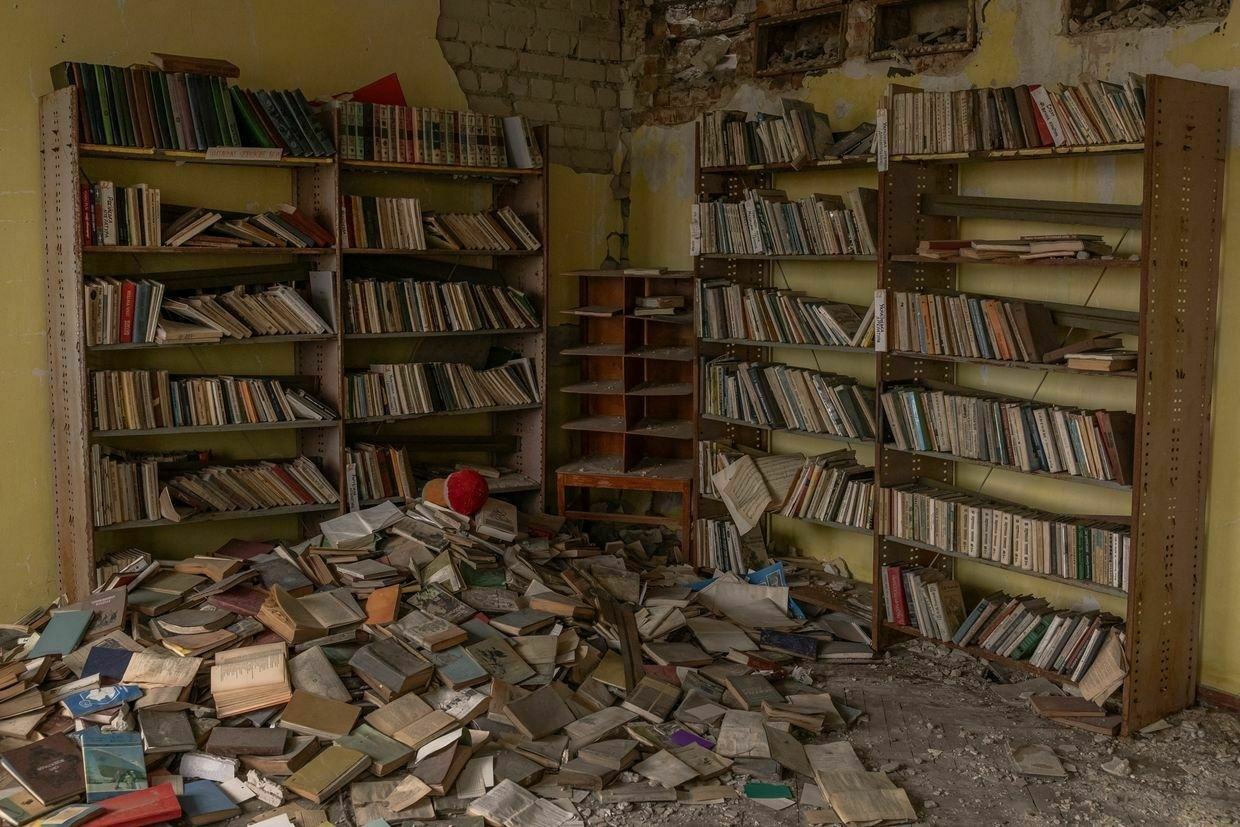
Note from the author:
Hi there, it’s Kate Tsurkan, thanks for reading this article. The story of Putin’s alleged daughter working in anti-war art galleries in Paris is one of those crazy stories that make you realize culture and politics are never that far removed from each other, especially when it comes to Russia’s war against Ukraine. I hope by reading this article you also reflected on questions of accountability, transparency, and trust during wartime. If you like reading this sort of material, please consider supporting us by becoming a paid member of the Kyiv Independent today.
